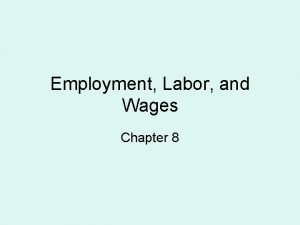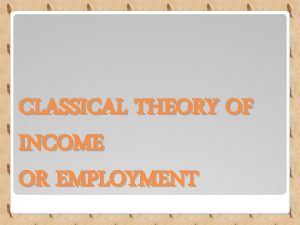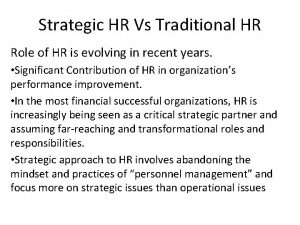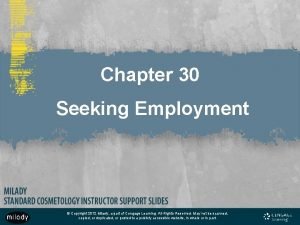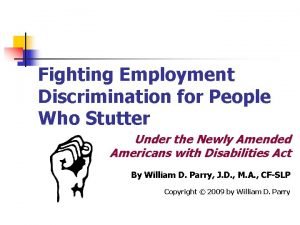Lowwage and lowhour employment in Germany Needing a








- Slides: 8

Low-wage and low-hour employment in Germany: Needing a lawyer to be considered as a “worker”? Stamatia Devetzi 1

Concept of worker in Germany and its relevance for EU migrants � 2 During the last years, the number of social court cases dealing with the question „who is a worker/employee“ appears to have risen quite significantly � Why is it important for EU-migrants to be a worker/employee? � Which criteria are used by the public authorities in Germany in order to determine the status of worker? � Case Law of the Social Courts (examples) � Conclusion

Concept of worker and its relevance for EU-migrants: Why it is important to be a „worker“? � 3 In Germany, having a worker status is relevant for mobile EU citizents especially in the framework of their application for the „basic social benefits“ (subsistence benefits) � Right to freedom of movement and residence for employees (and self-employed persons): § 2 para. 1 no. 1 and 2 „Freedom of Movement Law“ � If right of residence exists => Entitlement to „basic social benefits“ � Persons having worker status with few working hours and/or low wages are entitled to (supplementary) „basic social benefits“ according to the SGB II

Criteria to determine the status of worker � No specific threshold regarding hours or earnings � Important for the application of law: „Instructions from the Federal Employment Agency regarding basic social benefits“ � Prima facie: „Instructions“ comply with the criteria developed by the CJEU in Genc: „an activity must be assessed by an (…) overall evaluation of all available circumstances“ � However, the „Instructions“ also provide explicit criteria for the refusal to recognise the status of worker: very short working hours (=less than 8 hours a week); work is carried out only sporadically; taxes and social contributions are not paid properly 4

German Case Law (Social Courts) � Case Law: Status of worker is determined on a case-by-case basis, taking into account all relevant facts (i. e. working hours, earnings, regularity, social security coverage, applicability of collective agreements etc. ) � Research: Case Law between 2015 -2018; Decisions of Higher Social Courts (2. Instance) and Federal Social Court � No common line discernible: out of 20 Decisions, 13 confirmed worker status; 5 denied it 5

Examples of cases where worker status was confirmed � Spanish national working as a nursing assistant with a weekly working time of 4, 5 hours a week and monthly gross salary of € 165, 75: activity assessed as „actual and genuine“ � Greek national with a weekly working time of 4 hours and salary of € 149 per month; existence of sickness payment and holiday entlitlement => no marginal activity � Spanish national working a Spanish language teacher for 5 hours a week for € 200/month: activity „cannot be regarded as marginal, if exercised regurarly and durably“ 6

Examples of cases where worker status was denied � Federal Social Court: Selling of a magazine for homeless people is not an activity establishing the status of a worker � Slovak national working as office assistant for 12 hours/month and salary of € 102/month: „activity marginal and insignificant“ � Polish citizen was simultaneously engaged in two different jobs: as a domestic helper with a weekly working time of 2. 5 -3 hours/9. 50 euro per hour and as a care worker for 4 hours a week with a remuneration of 7. 50 per hour: not satisfying essential characteristics of a dependent employment (agreement on hours, sickness and vacation); also lack of registration for social security 7

Conclusion � quite often, negative decisions of the authorities are challenged � disparities in case law � no “standard” or common line is to be found, especially regarding the assessment of working hours and remuneration/earnings � 8 case-by-case determination can make it quite difficult for migrants to know their rights and claim for them


